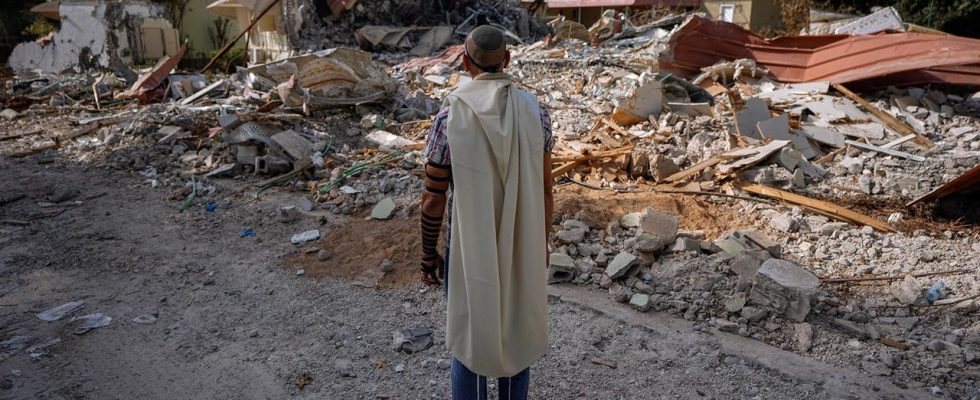One month ago today, terrorists from the Gaza Strip attacked Israel, starting a war in the Middle East. Since then, thousands of people have died, millions have fled – and there is no end in sight.
It has been exactly a month since Hamas’ terrorist attack on Israel. Israel has been mourning the 1,400 dead in the attack for a month. The relatives continue to fear for the kidnapped hostages.
There are still a quarter of a million refugees in Israel. They have left the area around the Gaza Strip – as well as many towns in the north, on the border with Lebanon. Because there is shooting there too, people continue to die there too.
More than 10,000 killed in the Gaza Strip
The war in the Gaza Strip has also been going on for a month. Israel’s army says it has attacked around 12,500 “military targets” since then. More than 10,000 people have now been killed, including over two thirds women and minors. The United Nations reports this, citing figures from Hamas.
More than 45 percent of the buildings in the Gaza Strip have been destroyed or seriously damaged. More than 1.5 million people have become internally displaced within the Gaza Strip. There is also no security in the south, where hundreds of thousands have fled, because Israel is attacking targets there too.
And the humanitarian situation is becoming more and more precarious, also because too few aid deliveries are coming to the Gaza Strip: there were an average of 33 trucks a day, reports the Palestinian Red Crescent – according to the United Nations, there should be at least 100 trucks a day with food, water and medical supplies be material. Fuel is also still urgently needed, for example to operate hospitals.
Najla Shawa, an employee of the aid organization Oxfam, reports on the situation she is experiencing in the south of the Gaza Strip: Food is running out in Nusseirat and Deir Al Bala. There was nothing but rice, and the noodles were also running low.
Continued shelling of Israel
And despite the massive strikes by the Israeli army: Rockets are still being fired at Israel from the Gaza Strip and in the north – more than 9,000 so far. There have been rocket alarms around 8,500 times since the start of the war, in a total of 570 towns. It has permanently shaken many Israelis’ sense of security. This continues these days – while the ground offensive is being expanded and urban warfare is ongoing in Gaza City, the largest metropolitan area on the coastal strip.
Ohad Hemo, an analyst who works for Israel’s Channel 12 television, has doubts about the IDF’s successes in the war against Hamas: “I haven’t seen any signs that Hamas is already collapsing. We have to distinguish between the civilian Gaza Strip “We have reached a point where we have never been before, and the military Hamas. The Palestinians report 10,000 deaths so far. But there are no signs that Hamas is in crisis.”
Netanyahu under pressure
Even after a month, Israeli politicians and the military leadership are still saying: This war will last a long time, months. And the considerations about the time afterwards are not yet particularly concrete.
Israeli Prime Minister Benjamin Netanyahu is under increasing pressure – there is a discussion about his personal responsibility for the Hamas attack. Critics say his government, which is partly right-wing extremist, has set the wrong priorities in recent months, for example on restructuring the rule of law and expanding settlements in the occupied West Bank.
This is also why Netanyahu spoke for the first time about a long-term perspective for Gaza in an interview with the US television station ABC: “I think that Israel will continue to have overall security responsibility for an indefinite period of time. Because we have seen what happens if we do “Then we’ll see an explosion of Hamas on a level we couldn’t imagine.”
role for the Palestinian Autonomous authority?
It is unclear what Israeli security responsibility will mean for the Gaza Strip – and what will happen politically there. The US has floated a possible role for the Palestinian Authority under Palestinian President Mahmoud Abbas, which controls parts of the West Bank.
But given the current state of the autonomous authority, this does not seem realistic to many: it would probably first have to be fundamentally renewed and, above all, democratically legitimized.
And above all, Israel must win the war against a terrorist organization in densely populated areas. In the hope that there won’t be a major escalation in the north with Hezbollah, which controls the south of Lebanon.

